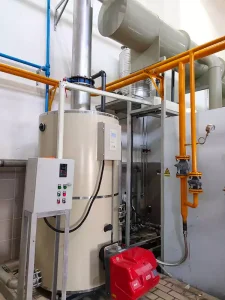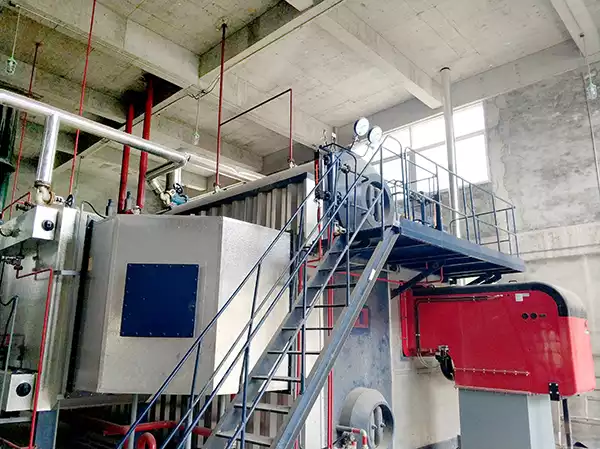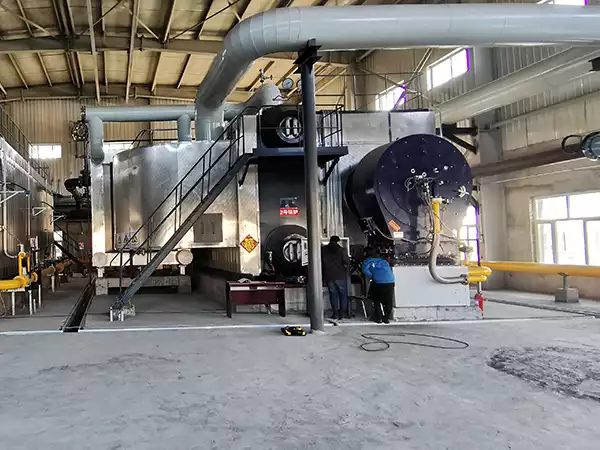Introduction
With the increasing demand for energy efficiency and environmental protection, liquid petroleum gas (LPG) boilers have become a popular alternative to traditional boilers that use natural gas or oil. LPG boilers are more efficient and emit fewer harmful gases, making them a greener option for heating homes and buildings. In this article, we will discuss what LPG boilers are, how they work, their operating costs, advantages and disadvantages, and their heating efficiency.
Need a new boiler?
What is an LPG Boiler?
LPG boilers are boilers that use LPG as their fuel source. LPG is a versatile, clean-burning fuel that is stored in tanks and delivered to homes and businesses by trucks. LPG boilers can be used for heating homes and buildings, as well as for providing hot water.
How do LPG Boilers Work?
LPG (Liquefied Petroleum Gas) boilers work by burning LPG gas to heat water. The LPG gas is supplied in pressurized cylinders or tanks, which are connected to the boiler. When the LPG gas is burned in the boiler’s combustion chamber, the heat generated is used to heat water that circulates through a network of pipes. This heated water is then used for central heating and to provide hot water for taps and showers. LPG boilers work in a similar way to natural gas boilers, but instead of using gas from the main supply, they use LPG gas stored on-site.

LPG boiler efficiency
LPG Boilers Operating Costs
The operating costs of LPG (Liquefied Petroleum Gas) boilers depend on several factors, including the efficiency of the boiler, the cost of LPG gas, and the amount of energy used. Generally, LPG boilers tend to be more expensive to run than natural gas boilers, due to the higher cost of LPG gas. However, LPG boilers can be more efficient than oil boilers, which can offset some of the additional fuel costs. Additionally, the cost of LPG gas can vary depending on market conditions and supply and demand factors. It is also important to note that regular maintenance and servicing of the boiler can help improve its efficiency and reduce operating costs over time.
How Much Does it Cost to Run an LPG Boiler?
The cost of running an LPG boiler depends on several factors, including the size of the boiler, the level of insulation in the home or building, and the amount of hot water used. On average, the cost of running an LPG boiler ranges from $1,000 to $2,000 per year. However, this cost can vary depending on the location and the supplier.
Get FREE Boiler Quotes
- ✔Get FREE Local Boiler Quotes today
- ✔Compare The Best Prices
- ✔Save Money On Your New Boiler Today!
Advantages of LPG Boilers
Despite their higher operating costs, LPG boilers have several advantages over natural gas or oil boilers. Firstly, LPG is a cleaner-burning fuel than natural gas or oil, which means that it produces fewer harmful emissions. This makes LPG boilers a greener option for heating homes and buildings. Secondly, LPG is a more versatile fuel than natural gas or oil. It can be stored in tanks and delivered by trucks, which means that it is not dependent on pipelines or mains gas supply. This makes LPG boilers a more reliable option for areas with limited access to natural gas or oil.
Disadvantages of LPG Boilers
The main disadvantage of LPG boilers is their higher operating costs. LPG is more expensive than natural gas or oil, so LPG boilers cost more to run. Additionally, LPG boilers require a different type of burner and heat exchanger to those used in natural gas or oil boilers, which can make them more expensive to install. Finally, LPG tanks take up more space than natural gas or oil tanks, which can be a disadvantage for homes or buildings with limited outdoor space.

LPG combi boiler for sale
Heating Efficiency of LPG Boilers
The heating efficiency of LPG boilers varies depending on the type and model of the boiler. However, in general, LPG boilers are more efficient than natural gas or oil boilers. This is because LPG has a higher calorific value than natural gas or oil, which means that it produces more heat per unit of fuel burned. Additionally, LPG boilers can be more easily adjusted to provide a consistent and efficient level of heat output.
Can I switch from oil to LPG?
Yes, it is possible to switch from oil to LPG. However, it will depend on a number of factors, such as the availability of LPG in your area, the type of heating system you have, and the cost of installation. It is recommended that you consult with a qualified heating engineer or LPG supplier to discuss your options and determine the feasibility of making the switch. Additionally, you may need to make modifications to your existing heating system or purchase a new LPG boiler or heater.
Conclusion
LPG boilers are a cleaner and more versatile option for heating homes and buildings than traditional natural gas or oil boilers. While they do have higher operating costs, their advantages in terms of environmental impact and reliability make them a compelling choice for many homeowners and businesses. When considering installing an LPG boiler, it’s important to consider factors such as the cost of fuel, the size of the boiler, and the amount of hot water needed. Additionally, it’s important to choose a reputable supplier who can ensure reliable delivery of fuel and maintenance of the boiler.
There is no lowest price, only a lower price. You get what you pay for. We hope you are looking for the perfect working performance of the equipment, not the low-priced inferior goods. our only provide our clients with high quality. With cooperation with you in the future.

Looking for boilers with sophisticated manufacturing, great quality?
Fangkuai boiler can always provide what you want.


